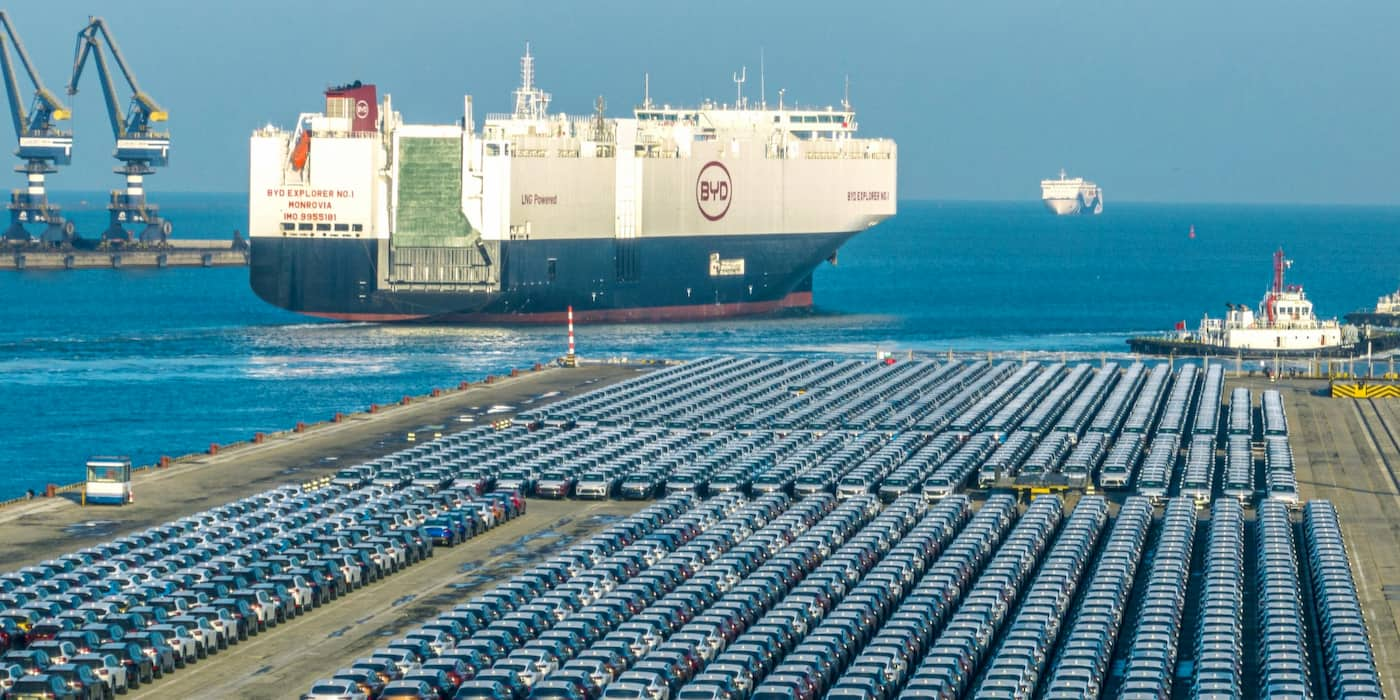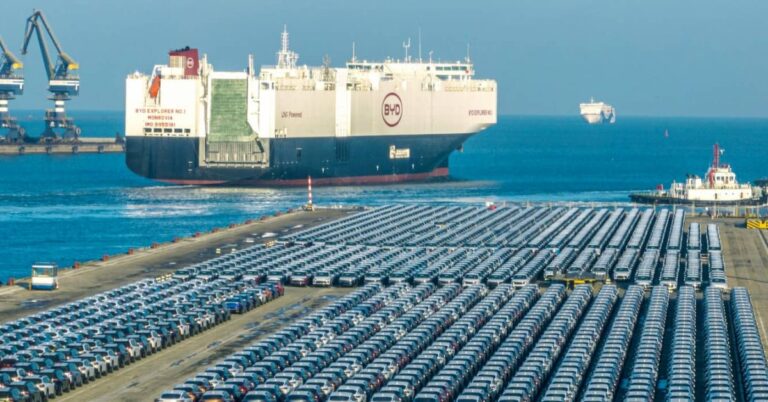
As expected, China and its vast network of EV OEMs are unhappy with the EU Commission’s recent decision to impose tariffs on Chinese-made vehicles. In retaliation, Chinese automakers have asked the government to raise tariffs on imported European cars.
Today’s auto industry news is the latest criticism hurled in the ongoing battle between China and Europe: After an anti-subsidy investigation that began last fall, the EU Commission has determined that Chinese-made EVs have an unfair advantage in the European market.
The EU had already threatened to impose tariffs on Chinese imports, following in the footsteps of the U.S., which raised tariffs to 100 percent even before the European Commission published its findings. China has threatened to impose its own tariffs on European automakers while it waits for the results of the investigation, declaring a surcharge of up to 25 percent on gasoline-fueled vehicles imported into China.
EU automakers such as BMW, Volkswagen Group and Mercedes-Benz could be directly affected by Chinese tariffs, which is why Germany has already publicly stated its opposition to tariffs on Chinese-made EVs and hopes the two sides can reach a trade solution before the tariffs take effect.
Meanwhile, Chinese EV makers have signaled their determination to continue expanding into the European market despite the looming tariffs, but back home, those same OEMs are calling on the Chinese government to raise tariffs on EU automakers.

Chinese OEMs want higher tariffs on EU imports
According to Chinese government media Global Times According to the paper, Chinese electric vehicle manufacturers have urged the Beijing government to raise tariffs on internal combustion engine vehicles imported from Europe in retaliation for recent measures by the European Commission to block the sale of Chinese-made EVs in overseas markets.
According to reports, China’s Ministry of Commerce held a meeting in Beijing on Tuesday with leading auto companies, including SAIC, BYD, BMW, Volkswagen and Porsche. During the meeting, Chinese automakers urged the government to “take firm countermeasures” and “proposed to positively consider raising provisional tariffs on gasoline-powered vehicles with large-displacement engines.”
Mercedes-Benz, Stellantis and Renault were also reportedly in attendance. The meeting appeared to be an attempt to rally EU carmakers together to pressure the European Commission in Brussels to at least remove the tariffs.
German automakers have big stakes in markets on both sides of the global divide, and their participation in the Beijing show proves that European auto leaders are at least trying to ease trade tensions.
Earlier today, the European Commission acknowledged China’s threat of retaliatory tariffs, expressed an openness to negotiations and said it was monitoring the situation “with a view to discussing whether a mutually acceptable solution can be found”.
The EU’s tariffs on Chinese-made EVs are currently scheduled to come into effect on July 4, 2024, so there is still time for the two regions to find a solution.
FTC: We use automated affiliate links that generate revenue. more.

